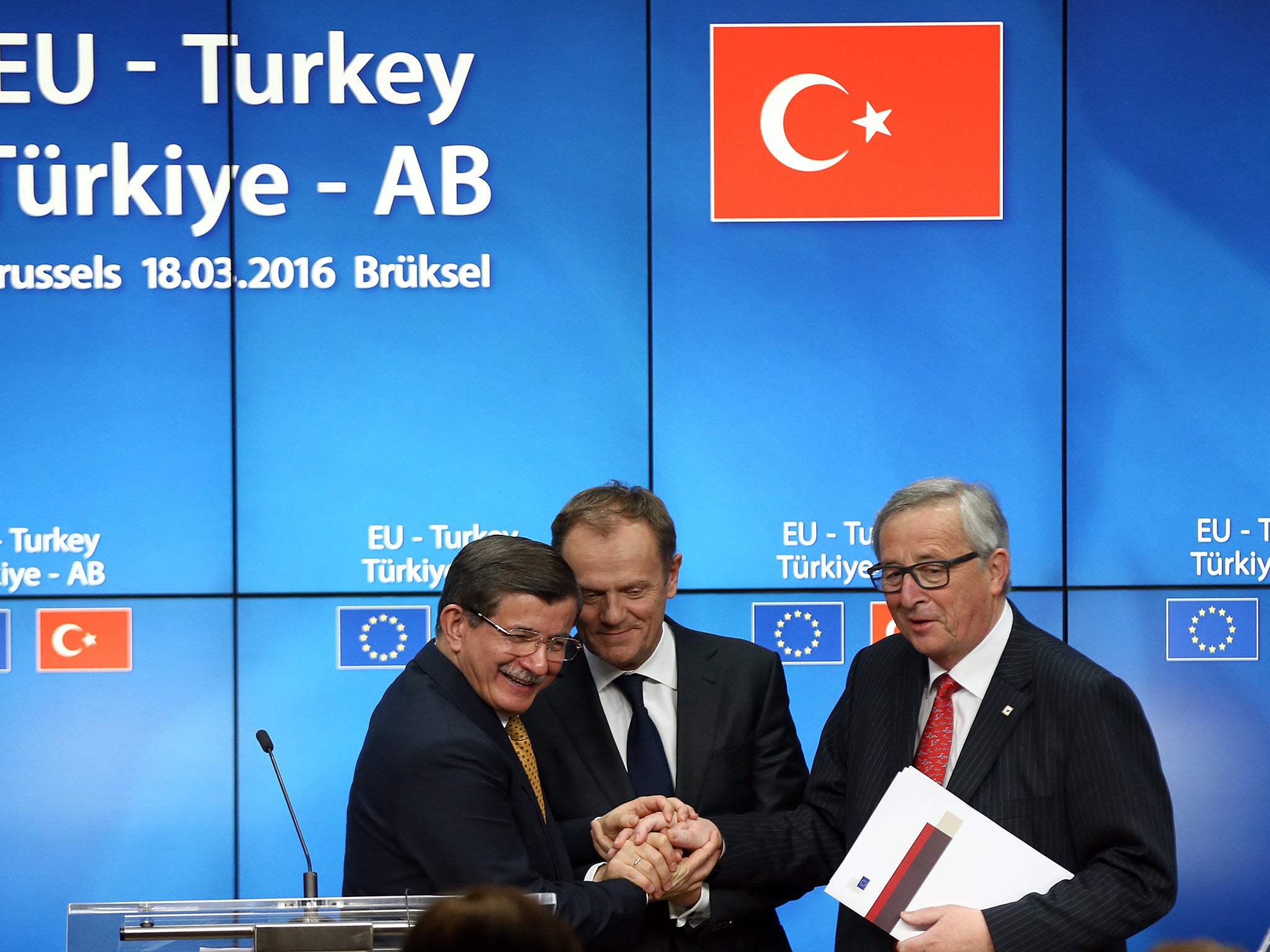Turkey deal: EU leaders finalise 'historic' agreement to stem flow of refugees
Landmark deal contains new assurances asylum claims made by those sent back to Turkey will be assesed by Greece

Your support helps us to tell the story
From reproductive rights to climate change to Big Tech, The Independent is on the ground when the story is developing. Whether it's investigating the financials of Elon Musk's pro-Trump PAC or producing our latest documentary, 'The A Word', which shines a light on the American women fighting for reproductive rights, we know how important it is to parse out the facts from the messaging.
At such a critical moment in US history, we need reporters on the ground. Your donation allows us to keep sending journalists to speak to both sides of the story.
The Independent is trusted by Americans across the entire political spectrum. And unlike many other quality news outlets, we choose not to lock Americans out of our reporting and analysis with paywalls. We believe quality journalism should be available to everyone, paid for by those who can afford it.
Your support makes all the difference.EU leaders have finalised a deal with Turkey aimed at curbing refugee flows across Europe, by agreeing that all migrants arriving in Greece across the Aegean Sea would be sent back to Turkey from midnight on Sunday.
The agreement contains new assurances that asylum claims made from those sent back to Turkey will be assessed by Greece. This aims to address concerns – expressed by civil rights groups – that the accord could lead to mass deportations by Ankara, a practice that would breach the EU’s obligations under the Geneva Convention.
The plan states that the EU will take in one Syrian refugee from Turkish soil in exchange for every Syrian readmitted to Turkey from Greece – a move aimed at disrupting people smugglers’ trade. At the same time, Turkey received a pledge that its long-stalled bid for EU membership would be revived, a doubling of refugee aid to from €3bn to €6bn and visa-free travel by June.
EU Council President Donald Tusk, who chaired the Brussels summit, said the legal questions about returning refugees were some of the trickiest to resolve. “We needed to ensure it complies with all EU and international law; this excludes any kind of collective expulsions,” he said, adding that UN agencies would be invited to take part in the process. He added that from Sunday, “all illegal immigrants coming from Turkey into the Greek islands will be returned to Turkey.”
German Chancellor Angela Merkel said she was confident the deal gave Europe the tools it needs bring the refugee crisis under control. “We hope that the irregular immigration will come to an end,” she said. “I think Europe will succeed in passing this difficult test.”
Turkish Prime Minister Ahmet Davutoglu, called it an “historic” day.
With 1.2 million migrants and asylum seekers reaching European shores last year – most of them from war-torn Syria and Iraq – the EU sought Ankara’s help in stopping them making the journey. And with more than 2.5 million Syrians in Turkish refugee camps, the aim is to keep them in place, and improve their lives so they would have less incentive to leave.
The EU’s €3bn grant to Turkey – renewable with a further €3bn in 2018 provided that “the desired results” are achieved – is mainly aimed at projects in the camps.
Turkey’s demand to restart EU membership talks was at risk of a veto from Cyprus, which insisted there could be no opening of new “chapters” until Ankara allows Cypriot traffic into its sea and airports. But EU leaders found a way around this by agreeing to open a negotiating chapter that was not one of the five blocked by Nicosia.
Turkey’s main objective, visa-free travel for Turks by June, is also part of the EU’s proposal. But it depends on Ankara meeting 72 technical requirements, including the introduction of biometric passports, and officials said that was doubtful by June.
Join our commenting forum
Join thought-provoking conversations, follow other Independent readers and see their replies
Comments